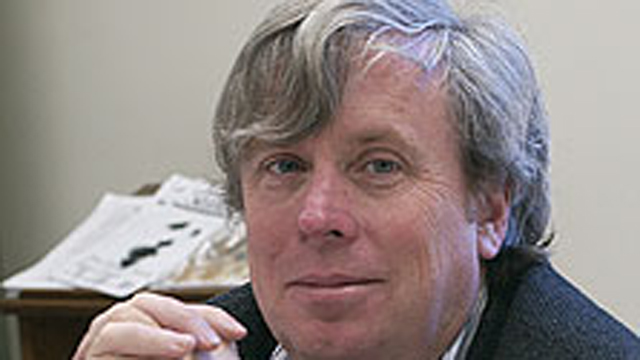Why Does Scientology Make Us So Upset?

If you only read one piece about Scientology, make it Lawrence Wright’s in this week’s New Yorker. Wright’s book The Looming Towertold the story of how we arrived at 9/11, and won the Pulitzer Prize. His writing is elegant and fast, and if there is one writer to lead us to the emotional center of a dangerous idea, we’d like it to be Wright.
Scientology, while posing no immediate threat to most of us, is something those outside of it have casually questioned for years. Yet let’s play Devil’s Advocate. Considering the history of belief systems, can we agree there are certain trajectories that repeat themselves? Like this one: a leader gains a following; individual followers become disillusioned, and angry; the value of the original idea becomes corrupted and criticized; someone calls for change. And then the cycle begins again. Are we witnessing a system that lacks validity, or a system that is perhaps poised for change?
Said another way, in a culture so obsessed with the superficial, can we still find fault with “beliefs” that work for some but not for others? If those beliefs are violent or criminal, yes, and these are questions Wright raises. His piece takes Scientology defector (and Academy Award winner) Paul Haggis as its anti-hero. He’s not Byronic, but he’s not exactly exactly Saul to St. Paul, either. Still, he was blind, but then he could see. And then he questioned the line of sight.
Even WikiLeaks makes an appearance in the piece, securing the Scientology debate’s moment in time:
Haggis finally reached the top of the Operating Thetan pyramid. According to documents obtained by WikiLeaks, the activist group run by Julian Assange, the final exercise is: “Go out to a park, train station or other busy area. Practice placing an intention into individuals until you can successfully and easily place an intention into or on a Being and/or a body.”
Wright describes a video, made for a Scientology event, in which Tom Cruise rhapsodizes about the rush of his faith, and explains how it has shaped him. If you read the text of the video without watching it, you might alter your judgment. Cruise says:
Being a scientologist, when you drive past an accident, it’s not like anyone else. It’s: you drive past, you know you have to do something about it. Because you know you are the only one that can really help. That’s what drives me. I know that we have an opportunity, to really to help. To change peoples lives. I am dedicated to that.
This sounds like any Rhodes Scholar, or Presidential candidate. We mock the arrogance, but the clarity of purpose is something we fuel billion-dollar businesses trying to cadge.
Scientology is a lightning rod not only because of its celebrity adherents but also because of its wackier aspects. Yet even if you call something wacky–or tacky, superficial or corrupt, it still falls within the historical paradigm of belief systems, broadly defined. Hating Scientologists for abuse, in any form, is valid. But hating them for principles we don’t understand? Helping people feel better about themselves and their place in the world is a game we have always played, and for which we have always paid. Highly.





